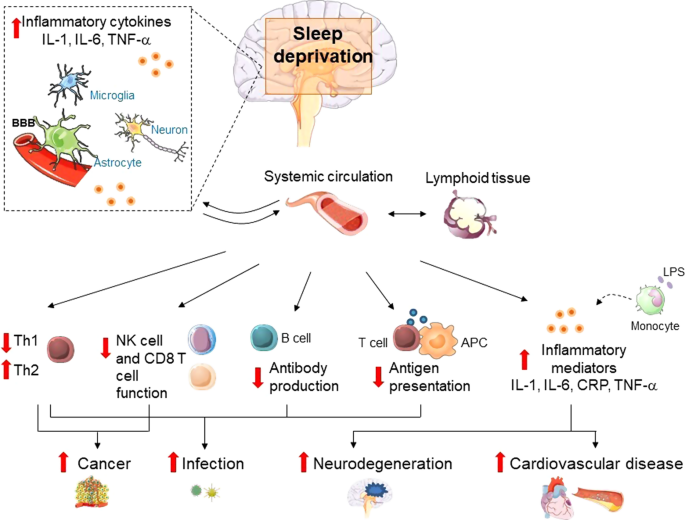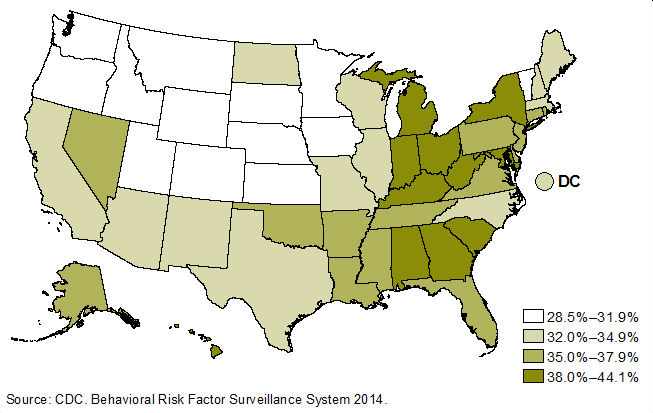To Sleep or Not to Sleep
Neuroscience reveals the startling consequences of skipping out on sleep
Neuroscientists have spent decades collecting evidence on a natural remedy that significantly improves the quality of your life overnight: from your mental health and heart health to your academic achievement and career performance. And this game-changer requires that you do absolutely nothing at all.
The solution? Sleep.
Living by the “I can sleep when I’m dead!” motto is incredibly misguided. Sufficient sleep works wonders in nearly every aspect of our lives, so it’s not hard to imagine that inadequate sleep is harmful in just as many ways. I think most of us can acknowledge that not getting enough sleep on a regular basis is generally unhealthy. But I don’t think we know how profoundly sleep loss affects us, even after just one night. Countless studies have taught us exactly how vital our nightly slumber is by discovering what a lack of it does to our brains and bodies – and it may be worse than you expected.
While we sleep, our brains are bursting with activity and spend quite a bit of time fighting disease and promoting cognition. The average adult needs around seven hours of sleep to carry out these essential functions. Teenagers, on the other hand, need at least eight to ten hours. But what happens when we don’t allow the necessary amount of time for this to take place?
Let’s start by looking at the extreme: getting absolutely no sleep. In a classic study conducted in 1989, ten rats were subjected to total sleep deprivation, meaning that they were kept awake for as long as possible. Starting after only 11 days, all of the rats eventually died or were sacrificed when “death seemed imminent.” Interestingly, we still don’t completely understand why or how this happens.
Most humans aren’t subjected to these extreme conditions. However, this study illuminates just how damaging sleep deprivation can be. Total sleep deprivation over several days in humans leads to amnesia, hysteria, and hallucinations, causing such severe psychological distress that it is recognized as a form of torture.
More commonly, many of us consistently get less than six hours of sleep a night for a wide variety of reasons, but even this shortage seems to take a hefty toll on our bodies. One extensive review found that sleep deprivation can cause “cognitive impairments including deficits in memory, learning, logical reasoning, complex verbal processing, and decision-making,” and getting four hours of sleep for just one week can result in “hypertension, cardiovascular disease, altered glucose tolerance and insulin resistance.”
Further studies have found that those who don’t get sufficient sleep are more likely to get sick and stay sick for longer periods of time with illnesses like the flu. This is because your immune system is very active while you sleep and releases proteins that fight infection and inflammation, possibly explaining why chronic sleep deprivation has been linked to heart attack, stroke, obesity, and even cancer. (I will stress that correlation is not synonymous with causation – usually more than one factor causes a disease to present, and sleep loss doesn’t guarantee the development of the aforementioned diseases. But it does seem to play an important role in a lot of health-related issues).

Your brain needs this same nightly maintenance. When you don’t get enough sleep, your brain doesn’t get the chance to properly remove harmful toxins and carry out other crucial reparations. This can lead to inflammation in the brain, which is associated with myriad brain disorders such as depression, Parkinson’s disease, and more.
Even more alarming is that pronounced effects can be seen after just one night of sleep shortage. In a recent study published in 2018, researchers found a slight accumulation of amyloid beta in the healthy human brain after just one night of sleep deprivation. One of the key biomarkers for Alzheimer’s disease is amyloid beta plaque buildup. This finding aligns with previous studies that identified sleep as a potential risk factor for developing dementia later in life.
Sleep loss especially hurts the developing brain and body. Crucial processes like muscle repair and growth hormone release occur during deep sleep, which are both imperative for physical development. If your muscles don’t have time to recover, then it would make sense that your chance of injury increases with inadequate sleep. One study reported that teenage athletes who regularly got less than 8 hours of sleep were nearly twice as likely to injure themselves compared to those who slept for 8 hours or more.
Our ability to problem-solve and retain new information is also affected by sleep. Studies reveal that consistently getting quality sleep is associated with increased academic performance. Dream sleep, in particular, is vital for learning, creativity, and memory consolidation, thus explaining why regular sleep loss can hinder our success in school or at work.
The list goes on. While short-term sleep deprivation can definitely be injurious, the most severe consequences require chronic deprivation. Integrating other healthy lifestyle factors like eating a well-balanced diet and getting daily physical movement can certainly be protective against the long-term consequences of sleep loss, but they can only do so much. Getting adequate sleep every night is truly a form of preventative medicine, both physically and mentally.
Of course, it must be acknowledged that sleeping well is a privilege. Many people can’t afford sufficient sleep for a wide variety of reasons: work, kids, stress, sleep disorders, disabilities, and so on. In his book, The Neuroscience of Sleep and Dreams, Patrick McNamara shares, “More than sixty million Americans, or approximately one in three adults, experience inadequate sleep that can interfere with daily activities.”
McNamara also emphasizes the socioeconomic disparities observed in sleep quality. “People who live in poor neighborhoods are more vulnerable than others to many of these sorts of worries and sleep-loss-inducing stressors,” he writes. “Recent community surveys have found that upwards of 53% of African Americans living in poor neighborhoods sleep less than six hours a night.” Our societal suffering from chronic sleep deprivation is something that needs serious addressing at both the large-scale and particularly among vulnerable populations.
With all that being said, don’t panic if you haven’t been sleeping well. You’re not totally doomed: it’s not always humanly possible to get enough sleep, and there’s still time to start prioritizing sleep and fight against those long-term health consequences. And while an occasional all-nighter might not kill you outright, think twice before staying up all night to study for that exam!
If you’d like further information on how to get better sleep at night, check out these science-backed tips published by the U.S. Department of Health and Human Services.

